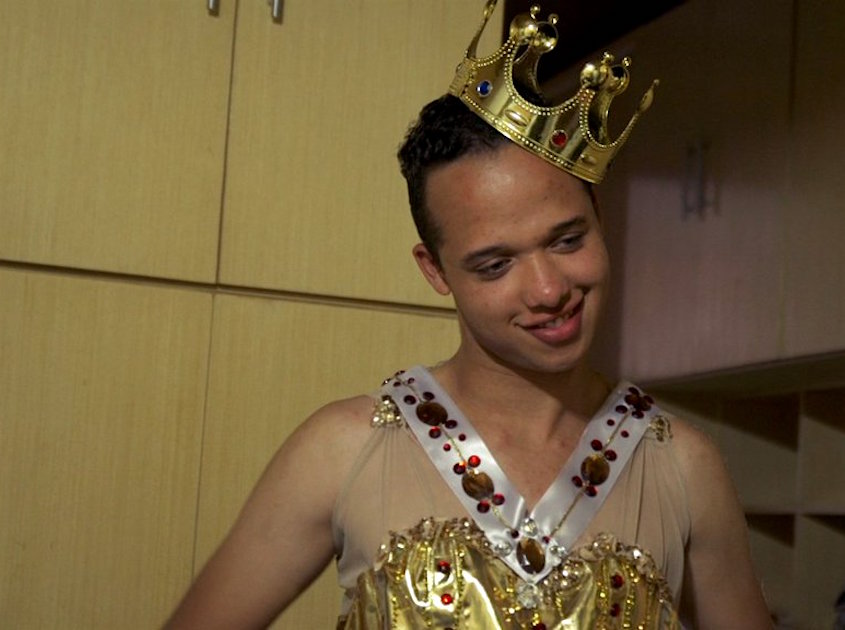Socio-economic Apartheid is alive and kicking in Brazil: rich kids pay $700 in order to be close to Beyoncé as she performs at Morumbi Stadium in São Paulo, while poor kids have to queue for up to two months for a similar position. But the waiting game is not without disadvantages: the passionate fans enjoy a vibrant atmosphere throughout, as they exchange friendly banter, insights into their lives and have a lot of fun in the provisional camp erected under the sweltering sun of a heavily-polluted concrete jungle. What what harm could a few days of toxic car emissions do when you are about to fulfill the biggest dream of your life?
These young people are “camping” in both senses of the word: they sleep in makeshift tends for weeks, and they also camp it up in very good, swingy and extravagant Brazilian style. Virtually all the males queuing up are either gay or bisexual, a phenomenon for which they are unable to pinpoint the reason. But there’s something else they can explain with confidence: Beyoncé has, in one way or the other, liberated each one of them and changed their lives for the best.
The film title has a twist that only Brazilian Portuguese speakers will grasp. “B” (pronounced “bee”) is how gay men address each other in Brazil, being short for “biba” or “bicha” (both meaning “queer”).
This is not the only film at BFI Flare this year dealing with Brazilian Camp: Body Electric by Marcelo Caetano portrays young gay people camping it up. Click here in order to read our exclusive review of the film or here in order to find out why we write Camp with capital C.

Beyoncé is a landmark for these young people. She’s more than a pop star: this is a personality cult. They want to incorporate her dancing, her singing and her song lyrics into their lives. The American dancer and singer is a role model for both Black and LGBT people. She has given many fans the motivation to learn English, or provided them with inspiration to go to university. To others, she has given the strength to confront a prejudiced family and society. Never underestimate the power of music, even if it’s in a foreign language.
During the unusual two-month stint, the fans reflect on a number of peculiar paradoxes, such as the prejudice that gay and Black people have to face in Brazil. They note that Black people are often racist against Black, and that gays often discriminate each other (the most effeminate ones tend to suffer the most). A fan notes that Beyoncé’s skin is always pale and her hair is straightened, and concludes “she wants to be white”. There are also reflections on family, classism, lack of social mobility and the so many woes affecting these people – who are almost entirely dark-skinned and living in the suburbs.
Waiting for B showed as part of the BFI Flare London LGBT Film Festival, when this piece was originally written. The film won the Best Film prize at the Mix Brasil, the largest LGBT film festival in Latin America, and also the Best Documentary award at the Lisbon Queer Film Festival. it shows at Fringe! on June 30th (2019) – just click here for more information.








